Penn PhD Architecture 60 Years Symposium
Kleinman Center, Fisher Fine Arts Building, 220 S 34th St, Philadelphia
Stuart Weitzman School of Design
102 Meyerson Hall
210 South 34th Street
Philadelphia, PA 19104
Kleinman Center, Fisher Fine Arts Building, 220 S 34th St, Philadelphia
The PhD Program in Architecture at the Weitzman School of Design celebrates its 60 Years as a program. On March 21, 2025, graduate group faculty, students, and invited speakers will participate in a day of conversations on the future of doctoral research and scholarship in architecture. Resources, Resilience, and Resistance is an in-person event featuring 15 research presentations as well as a round table discussion on the challenges faced by students and educators alike who seek to address the impact of mounting changes to how data and information are accessed, increasing threats to university level research funds, unchecked development of artificial intelligence, questions of researcher agency and independence of thought, and challenges to the idea of open access to higher education for all.
PROGRAM
09.00 am - 09.30 am Registration
09.30 am - 10.00 am Introductions
10.00 am - 12.00 pm Session 1 | Resources: Material, Computational, and Critical
Lunch Break
1.00 pm - 3.00 pm Session 2 | Resilience: Ecology, Climate, and their Imaginaries
3.15 pm - 5.15 pm Session 3 | Resistance: Identity, Community, and Mutuality
Reception
5.45 pm - 6.45 pm Roundtable | On the Future of PhD Education in Architecture
This Event is In-Person only.
If you require any accessibility accommodatio
Graphics and organization by Basak Eren.
In navigating the ever increasing of terrain of resource loss and precarious sourcing, how can research on non-extractive technologies, biogenic materials, optimized and lightweight structures, and computational narratives help us live and build more creatively and critically?
Moderator: Max Hakkarainen, Ph.D. Candidate, Weitzman School of Design, University of Pennsylvania
SPEAKERS
Laia Mogas-Soldevila, Assistant Professor, Weitzman School of Design, University of Pennsylvania
Reviving Matter for Regenerative Architecture
Masoud Akbarzadeh, Associate Professor, Weitzman School of Design, University of Pennsylvania
Polyhedral Structures in Research
Theodora Vardouli, Associate Professor, Peter Guo-hua Fu School of Architecture, McGill University
Bare-bone Architecture: The history of an intellectual quest and its institutions
Daniela Fabricius, Assistant Professor, Weitzman School of Design, University of Pennsylvania
Economies of Form: Between Excess and Scarcity
John Ochsendorf, Professor, Department of Architecture, MIT
The Endless Frontier of Design Research
In recognizing that we have reached the limit of human survivability, how might imaginaries of extreme survival, extraplanetary remediation, mitigation of extreme heat, regenerative bio-spheres, and equitable energy policies sustain our desire for a better tomorrow?
Moderator: Zherui Wang, Ph.D. Candidate, Weitzman School of Design, University of Pennsylvania
SPEAKERS
Dorit Aviv, Assistant Professor, Weitzman School of Design, University of Pennsylvania
Rethinking Heat Resilience in the Built Environment
William W. Braham, Professor, Weitzman School of Design, University of Pennsylvania
The Intelligence of Buildings: Information and Bioclimatic Design
Rami Kanafani, Ph.D. Candidate, Weitzman School of Design, University of Pennsylvania
New Age Environmentalism: The Lindisfarne Association at the Cathedral of St. John the Divine
Lydia Kallipoliti, Associate Professor, GSAPP, Columbia University
Parallel Histories of Climate; Cohabiting the World
Jonathan Massey, Dean and Professor of Architecture, Taubman College, University of Michigan
Climate Futures
In acknowledging the historical and current commitment with which some seek to silence the voices, values, practices, and projects of the many, what forms of knowledge formation can we share and cultivate in community that resist all manner of social, material, colonial, political, gender, and labor inequities?
Moderator: Vanessa Grossman, Assistant Professor, Weitzman School of Design, University of Pennsylvania
SPEAKERS
Fernando Luiz Lara, Professor, Weitzman School of Design, University of Pennsylvania
Connecting the Dots: Reframing the History of the Built Environment of the Americas
Ana María León, Associate Professor of Architecture, Graduate School of Design, Harvard University
Spatial Solidarities in 1970s Chile
Franca Trubiano, Associate Professor, Weitzman School of Design, University of Pennsylvania
Laboring in the Shadows, the Matter of Building and Human Rights
Qiran Shang, Ph.D. Candidate, Weitzman School of Design, University of Pennsylvania
Dancing with ‘Small Freedom’: Postsocialist Architecture and Queer Spacemaking in China
S.E. Eisterer, Assistant Professor of Architecture, School of Architecture, Princeton University
In the Architectural Archives of Socialist Polyamory
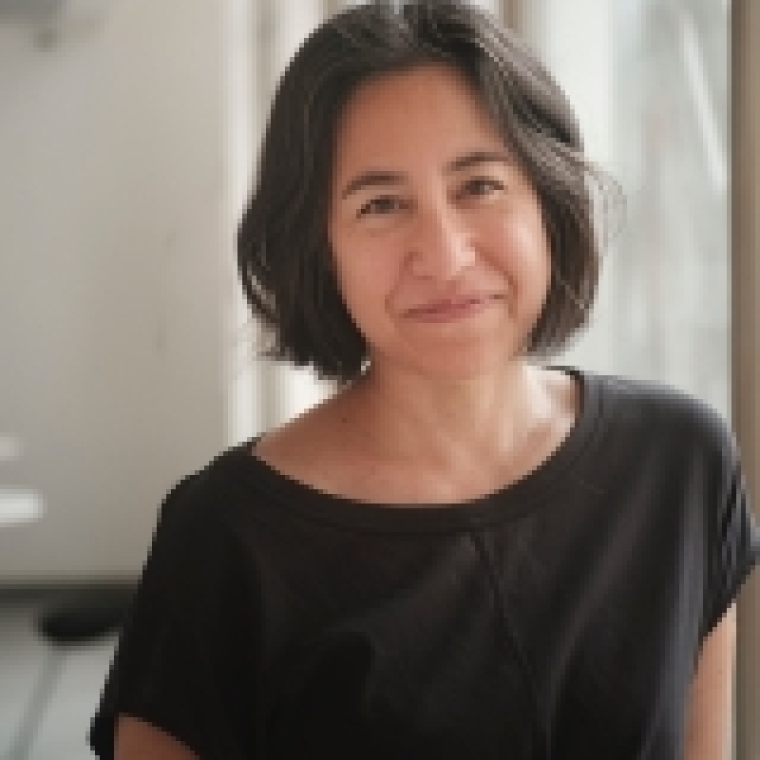 Ana María León
Ana María León
Ana María León's work traces spatial practices and transnational networks of power and resistance in the Americas. She is Associate Professor at the Harvard Graduate School of Design and co-founder of several collaborations laboring to broaden the reach of architectural history including Nuestro Norte es el Sur. León's work has been published widely; she edited Thresholds 41: Revolution! and has co-edited special issues of the Architectural Theory Review (with Niko Vicario) and e-flux architecture (with Andrew Herscher). She is the author of Modernity for the Masses: Antonio Bonet’s Dreams for Buenos Aires (2021) and A Ruin in Reverse / Bones of the Nation (2021). León holds an architecture diploma from Universidad Católica de Santiago de Guayaquil, master’s degrees from Georgia Tech and Harvard University, and a PhD from MIT.
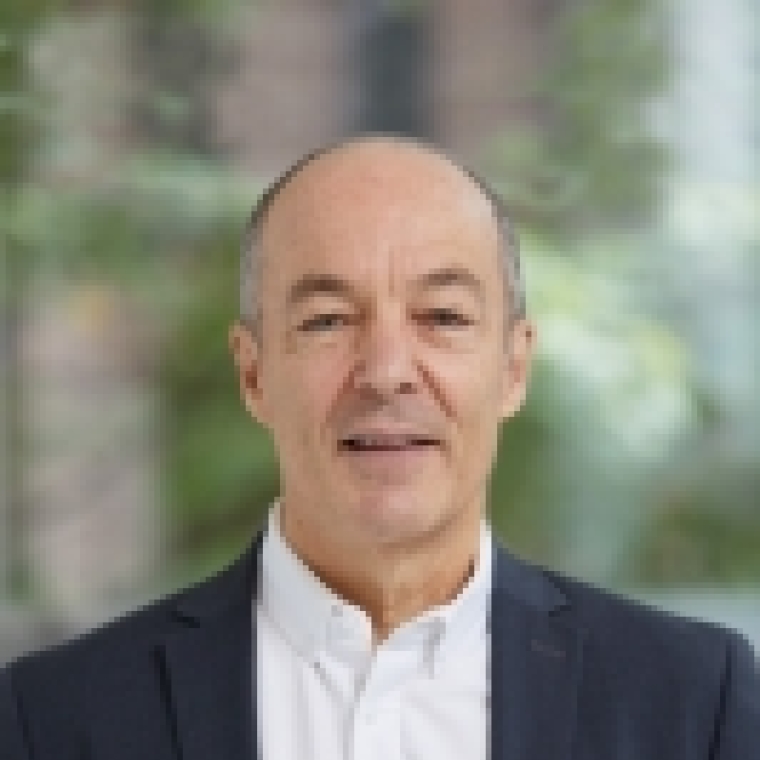 William W. Braham
William W. Braham
William W. Braham, PhD, FAIA is the Andrew Gordon Professor of Architecture at the University of Pennsylvania where he is Director of the programs in Environmental Building Design and of the Center for Environmental Building + Design. He has worked on energy and architecture for over 40 years as a designer, consultant, researcher, and author of numerous articles and books.
 Daniela Fabricius
Daniela Fabricius
Daniela Fabricius is an architectural historian and theorist, and an Assistant Professor in the Department of Architecture at the Weitzman School of Design. Her research and teaching interests include postwar German architecture and politics, histories of technology and digital design, feminist histories and theories, and architectural responses to historical reparations. She is the author of the forthcoming book The Ethics of Calculation: Architecture and Rationalism in Postwar Germany (University of Minnesota Press, 2026) and is completing an edited volume of the work of the feminist architectural theorist Jennifer Bloomer. Her work has been supported by the Graham Foundation, the New York State Council on the Arts, a Whiting Doctoral Fellowship, and the Whitney Museum Independent Study Program.
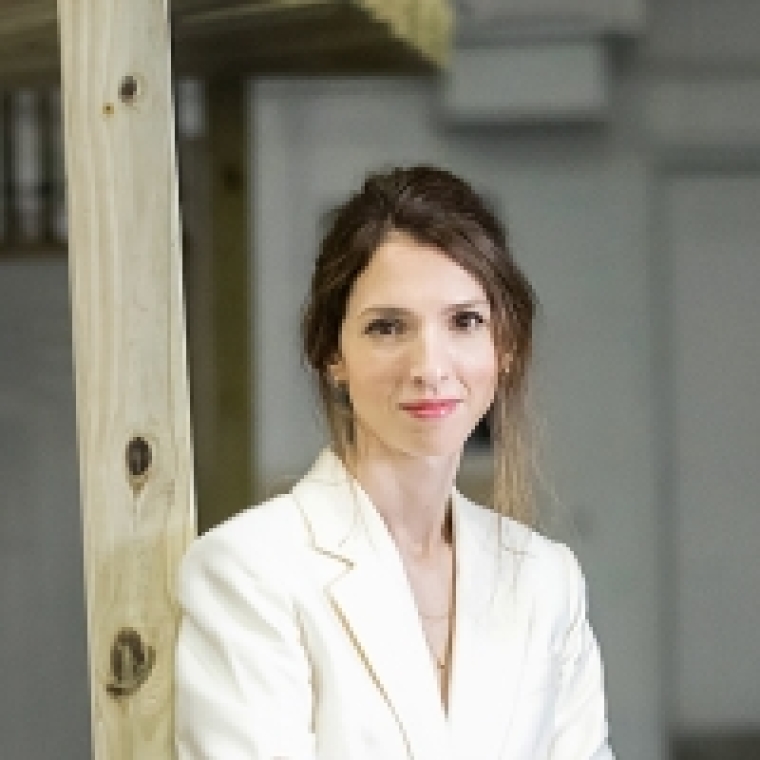 Dorit Aviv
Dorit Aviv
Dorit Aviv, PhD, AIA, is an Assistant Professor of Architecture at the Weitzman School of Design, specializing in environmental performance. She is the director of the Thermal Architecture Lab, a cross-disciplinary laboratory at the intersection of thermodynamics, architecture, and material science. Her work examines synergies between renewable environmental forces and architectural materials and forms. Aviv is a licensed architect and holds a PhD in architectural technology from Princeton University. Her prototypes for passive and low-energy cooling have won major international awards, including a Holcim Award for Sustainable Design and Construction for a prototype of passive cooling in desert climate in 2021 and a Ramboll Foundation grant to investigate applications of radiant cooling for urban shelters in 2024.
 Fernando Lara
Fernando Lara
Fernando Luiz Lara is a Professor of Architectural History and Theory at the Weitzman School of Design, University of Pennsylvania. Lara works on theorizing spaces of the Americas with an emphasis on the dissemination of architecture and planning ideas beyond the traditional disciplinary boundaries. In his several publications, Prof. Lara has discussed the modern and contemporary architecture of our continent, its meaning, context, and social-economic insertion. His latest books include Spatial Theories for the Americas (2024); Street Matters (with Ana Paula Koury, 2022); and Spatial Concepts for Decolonizing the Americas (edited with Felipe Hernandez, 2022) Excepcionalidad del Modernismo Brasileño (2019); and Modern Architecture in Latin America (with Luis Carranza, 2015)
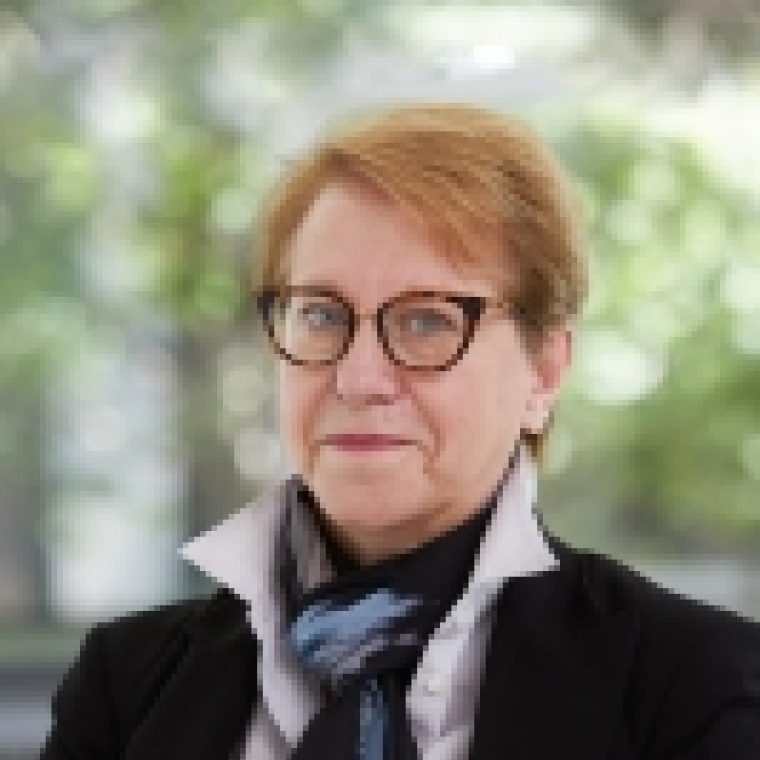 Franca Trubiano
Franca Trubiano
Dr. Franca Trubiano is Graduate Group Chair of the Ph.D Program in Architecture and associate professor at Penn’s Weitzman School of Design. She is a Registered Architect with l'Ordre des Architectes du Québec. Trubiano is the author of Building Theories, Architecture as the Art of Building (2023), co-editor of BIO/MATTER/TECHNO/SYNTHETICS_ Design Futures for the More than Human (2024) and co-editor of Women [Re] Build; Stories, Polemics, Futures (2019). Her edited book Design and Construction of High-Performance Homes (2012) was awarded the 2015 Sejong Outstanding Scholarly Book Award. Since 2021, she has co-directed Penn's Mellon funded, Humanities+ Urban + Design Initiative. She conducts funded research on 'Forced Labor, Fossil Fuels and the Building Industry.'
 John Ochsendorf
John Ochsendorf
John Ochsendorf is the Class of 1942 Professor of Architecture and Civil and Environmental Engineering at the Massachusetts Institute of Technology (MIT). He served as Director of the American Academy in Rome from 2017-2020 and is currently the founding director of the MIT Morningside Academy for Design since 2022. He has collaborated with architects, engineers and artists on the design of award-winning structures around the world, including the Mapungubwe Interpretation Centre which was named World Building of the Year at the World Architecture Festival in 2009. His research has been supported by a Fulbright Scholarship to Spain, a Rome Prize, a MacArthur Fellowship, as well as grants from the National Endowment for the Humanities, the Mellon Foundation, and the National Science Foundation. He is the author of Guastavino Vaulting: The Art of Structural Tile (PAP, 2010) and over 100 technical papers on sustainable design, masonry mechanics, and architectural structures.
 Jonathan Massey
Jonathan Massey
Architect and historian Jonathan Massey is dean and a professor at the University of Michigan’s Taubman College of Architecture & Urban Planning. Through publications and exhibitions including Crystal and Arabesque (2009), Governing by Design (2012, with the Aggregate Architectural History Collaborative), Marcel Breuer: Building Global Institutions (2018, edited with Barry Bergdoll), and Designing Material Innovation (2018), Massey has shown how architecture mediates power by forming civil society and regulating consumption. After completing undergraduate, professional, and doctoral degrees at UCLA and Princeton, he served in faculty and leadership roles at Syracuse University and California College of the Arts. Since joining Taubman College in 2017, Massey has worked with colleagues to create a first-of-its-kind degree in Urban Technology and a minor in Real Estate as well as to launch the college’s Climate Futures project and a university-wide Arts Initiative. He was recognized in 2020 by DesignIntelligence as a “most admired educator.”
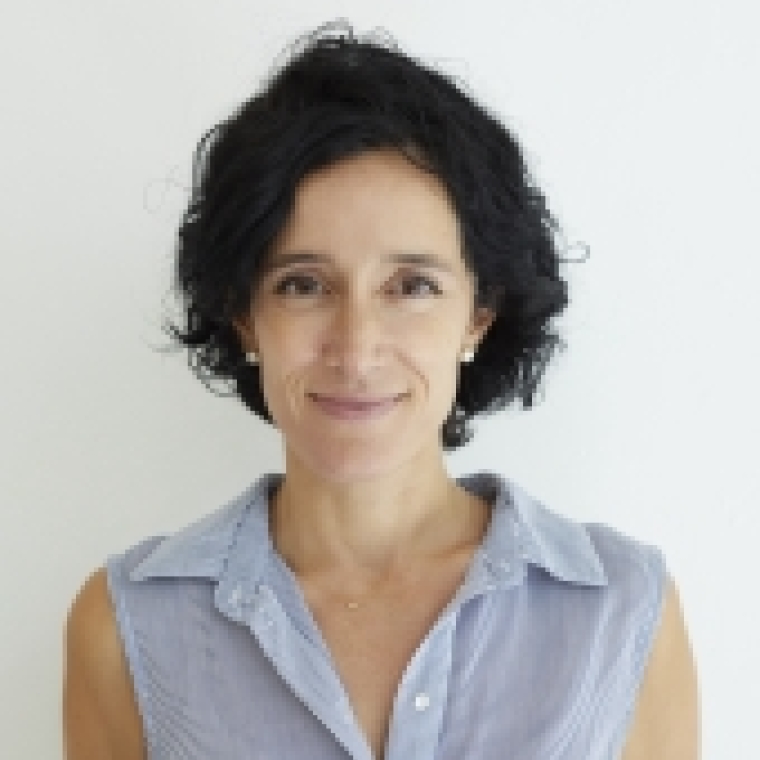 Laia Mogas-Soldevila
Laia Mogas-Soldevila
Dr. Laia Mogas-Soldevila is a licensed Architect with a PhD in Biomedical Engineering that has pioneered the “biomaterial architectures” field by bringing bio-fabrication methods and biodegradable materials from life sciences to the field of building construction.
She is an Assistant Professor of Graduate Architecture and Director of DumoLab Research at the Stuart Weitzman School of Design, University of Pennsylvania since 2022. Laia's research focuses on radically sustainable material practices across science, engineering, and design. Her pedagogy supports novel theory and applied methods understanding biomaterials and bio-based fabrication in product design and architecture. Over the past ten years while teaching at UPC, MIT, Cornell, and Penn, Laia has built scholarship reconsidering matter as a fundamental design driver and partnering with scientists to redesign it towards unprecedented environmental capabilities.
Dr Mogas-Soldevila has received the prestigious Johnson&Johnson Foundation Woman in STEM2D Scholar Award as well as grants by the National Science Foundation (NSF), Penn's University Research Foundation (URF), Kleinman Center for Energy Policy, the Penn Environmental Innovations Initiative, Sachs Program for Art Innovation, and the Penn Global Engagement Fund. Her work has been shown at the Milan's and London's Design Weeks in 2023 with industrial partners, NYC and SF MoMA as part of Mediated Matter Group in 2022, the New Lab in Brooklyn for Biofabricate with The Silklab, the ICA Philadelphia for ACADIA 2023, the Athens Opera House during Nostos Festival 2021 with the Tufts SilkLab, and at the Barcelona D-HUB Museum for DesignDoes 2020, and at CCA in 2025 for their Autodesk Technology Center Alliance Pioneering Biomaterials Symposium and Exhibit.
 Lydia Kallipoliti
Lydia Kallipoliti
Lydia Kallipoliti is an architect, engineer, and scholar whose research focuses on the intersections of architecture, technology, and environmental politics. She is an Associate Professor and the Director of the MSAAD Program at Columbia University GSAPP, as well as the author of The Architecture of Closed Worlds (2018) and Histories of Ecological Design (2024). Her work has been awarded, published, and exhibited widely including the Venice Biennial, the Istanbul Design Biennial, the Shenzhen Biennial, the Oslo Architecture Trienalle, the Lisbon Triennale, the Royal Academy of British Architects, the Storefront for Art and Architecture in New York and the London Design Museum. She is the principal of ANAcycle research thinktank and Head Co-Curator of the 2022 Tallinn Architecture Biennale. Kallipoliti holds a Diploma in Architecture and Engineering from AUTh in Greece, a Master of Science (SMArchS) from MIT and a PhD from Princeton University.
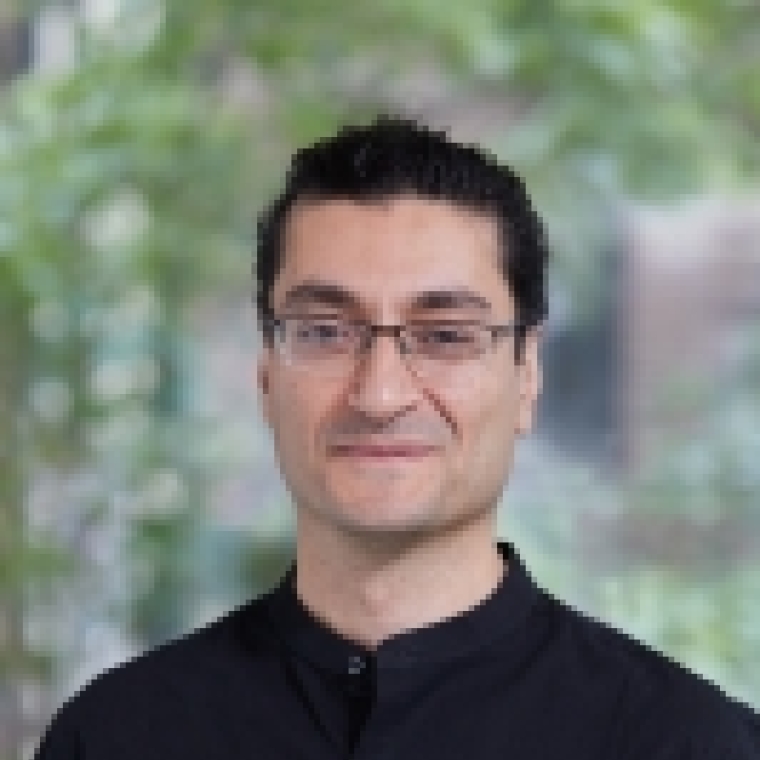 Masoud Akbarzadeh
Masoud Akbarzadeh
Masoud Akbarzadeh is associate Professor of Architecture in Structures and Advanced Technologies and the Director of the Polyhedral Structures Laboratory (PSL). He holds a D.Sc. from the Institute of Technology in Architecture, ETH Zurich, and a member of the Block Research Group. He holds two degrees from MIT: a MS in Architecture Studies (Computation) and a M.Arch, the thesis for which earned him the renowned SOM award. He has a degree in Earthquake Engineering and Dynamics of Structures and a BS in Civil and Environmental Engineering from the Iran University of Science and Technology. In 2020, he received the National Science Foundation CAREER Award to extend the methods of 3D/Polyhedral Graphic Statics for Education, Design, and Optimization of High-Performance Structures.
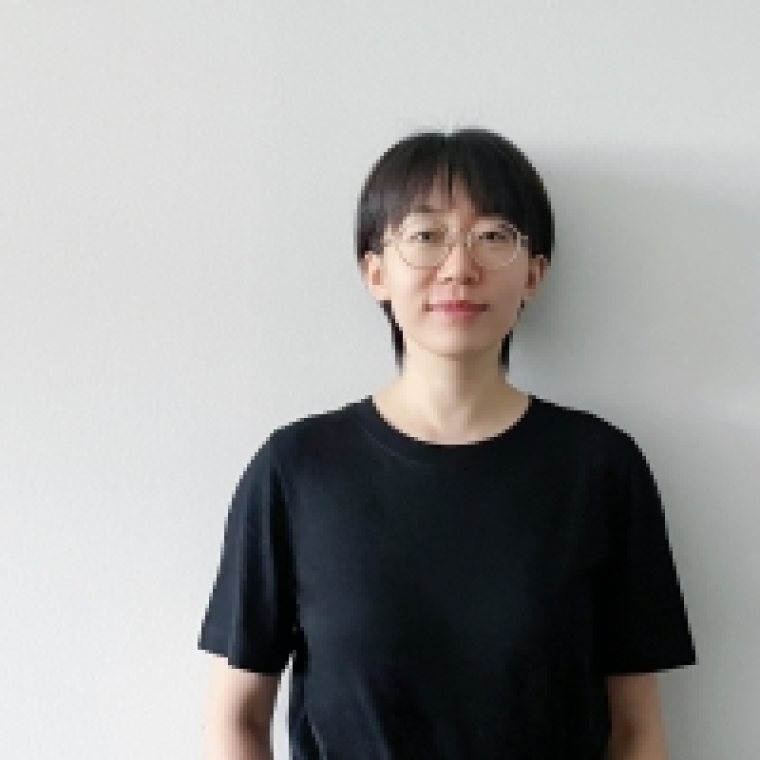 Qiran Shang
Qiran Shang
Qiran Shang (she/her) is a Ph.D. candidate in the History and Theory of Architecture at the University of Pennsylvania. Her research focuses on history of the built environment in postsocialist China, queer spaces, and geographies of resistance. Her dissertation examines queer space-making in Shanghai and Beijing since the late 1980s, tracing the conditions and tactics of queer spatial practices in relation to China’s postsocialist political economy and urban governance. Her work has been supported by the Graham Foundation, the Mellon Foundation, the Society of Architectural Historians, among others.
 Rami Kanafani
Rami Kanafani
Rami Kanafani is a PhD candidate in the History and Theory of Architecture program at the University of Pennsylvania. His work looks at countercultural architectural practices in the postwar period in the U.S. and their contribution to a spiritually and environmentally defined planetary culture. He seeks to take seriously the spatial and spiritual dimensions of New Age thinking and its focus on ecology in architecture in response to the rise of environmentalism. Alongside his work on alternative architectural and environmental practices, he also explores the relationship between the Anthropocene, posthumanism and architectural history.
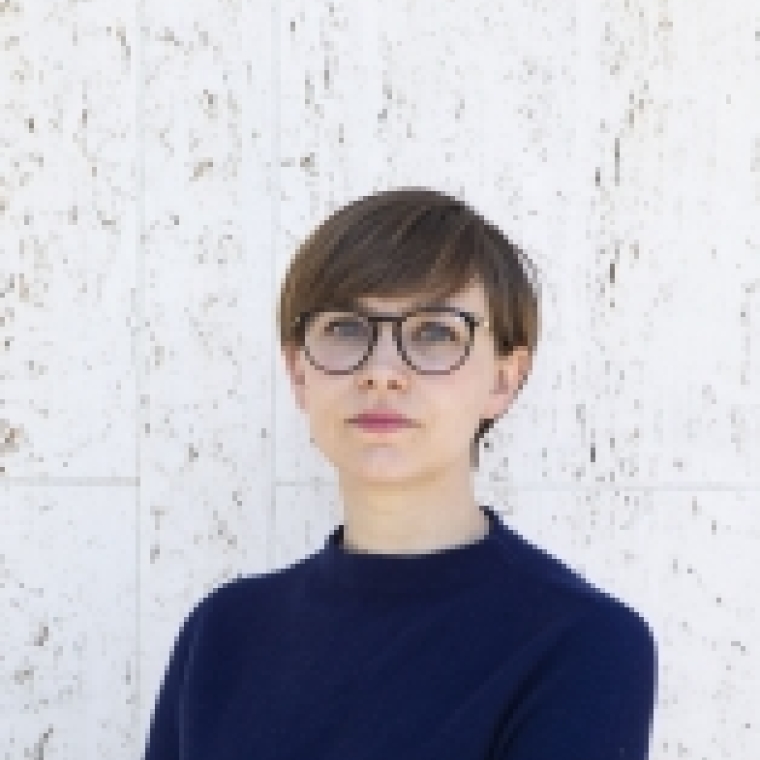 S.E. Eisterer
S.E. Eisterer
S.E. Eisterer is the Co-Director of the program in Media + Modernity, the Co-Director of Research at the Princeton-Mellon Initiative and an Assistant Professor for Architectural History and Theory at the School of Architecture at Princeton University. In the academic year 2024-2025 she is also a Visiting Fellow at the Center for Research in Feminist, Queer, and Transgender Studies at the University of Pennsylvania. S.E.’s research focuses on spatial histories of dissidence, feminist and queer theory, as well as the labor of social and ecological movements. Her edited volume In the Daylight of Our Existence: Architectural History and the Promise of Queer Theory is out with gta in 2025 and she is currently completing a book on Austrian architect Margarete Schütte-Lihotzky. Before joining Princeton University, she was a faculty member at the Weitzman School of Design at the University of Pennsylvania. With Torsten Lange, she co-founded Queer Space Working Group in 2021.
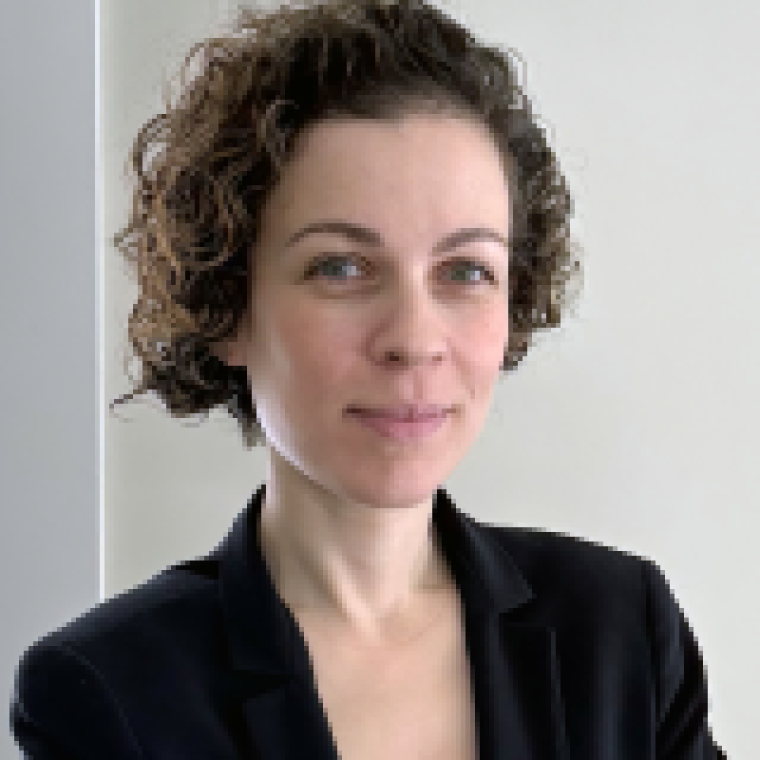 Theodora Vardouli
Theodora Vardouli
Theodora Vardouli, Ph.D., is Associate Professor at the Peter Guo-hua Fu School of Architecture, McGill University, where she directs the Computational Design Exploratory (CoDEx). Her research examines cultural meanings and operational implications of algorithmic techniques for architectural design through a combination of historical inquiry and critical design and making. She is author of Graph Vision (MIT Press 2024); co-editor of Computer Architectures (with Olga Touloumi, Routledge 2020) and co-author/co-editor of Designing the Computational Image (with Daniel Cardoso Llach, Applied Research and Design Publishing 2023). Recognitions of her work include the 2022 Best Paper Award by the Association for Computer Aided Design in Architecture (ACADIA) and the 2022 Mahoney Prize (with David Theodore) by the Special Interest Group for Computing Information and Society (SIGCIS). Vardouli serves on the editorial board of Technology, Architecture + Design where she was issue editor of 8:2 “Coding” and is currently guest co-editing a double special issue for the IEEE Annals of the History of Computing themed “Computing and the Built Environment.”
Vanessa Grossman is an architect, historian, and curator whose work explores the intersection of architecture, ideology, governance, and the pursuit of social and environmental justice. Her research focuses on Cold War-era architectural practices, particularly the geopolitical entanglement of the built environment in France and Brazil, while also addressing broader themes across Latin America and the Global South. Her recent books include A Concrete Alliance: Communism and Modern Architecture in Postwar France (Yale University Press, 2024) and the co-edited Constructed Geographies: Paulo Mendes da Rocha (Casa da Arquitectura/Yale University Press, 2024). Grossman has co-curated exhibitions and symposia at renowned venues worldwide, including Casa da Arquitectura, the Cité de l’Architecture et du Patrimoine, and the Venice Architecture Biennale. She is an Assistant Professor of Architecture at the University of Pennsylvania Stuart Weitzman School of Design.
 Zherui Wang
Zherui Wang
Zherui Wang is a designer and researcher currently conducting his doctoral work between CEBD Thermal Architecture Lab and the Polyhedral Structures Laboratory at the University of Pennsylvania Weitzman School of Design. His cross-disciplinary research spans between environmental building performance and form-finding, informed by architectural geometry, digital fabrication, and material.
Previously, Wang was an Academic Professional Researcher at CHAOS Lab in Princeton University Andlinger Center for the Energy and Environment, a Research Scholar at C-Lab in Columbia University GSAPP, and a faculty member at Penn, SUNY Buffalo, and Pratt Institute. He holds a post-professional MArch from Princeton University and a BArch from Pratt Institute.
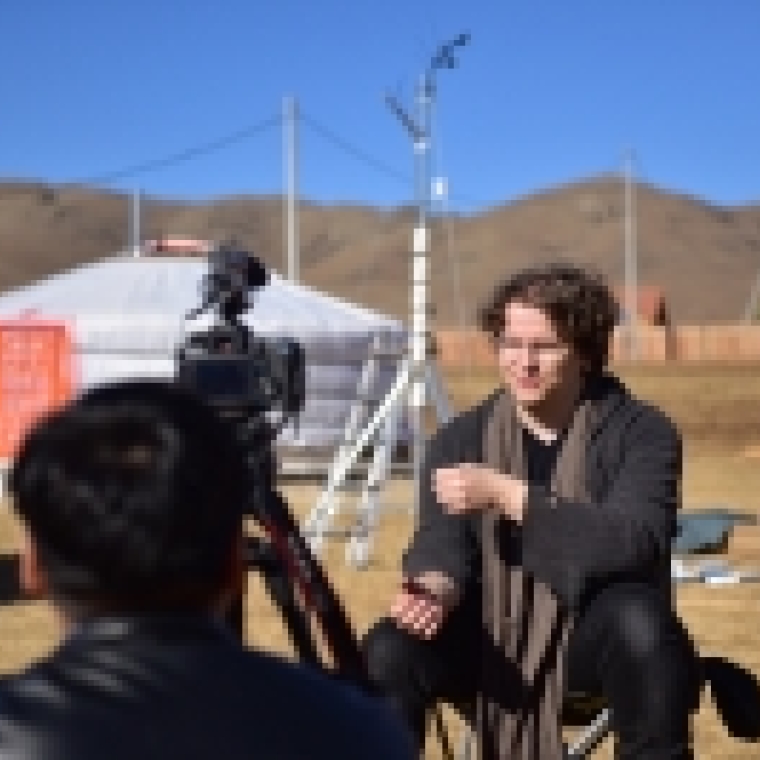 Max Hakkarainen
Max Hakkarainen
My research focuses on understanding air as a living material of the built environment. During my PhD studies, I have worked on several indoor air quality assessment projects. Additionally, I have measured air infiltration rates in buildings using well established and novel experimental techniques. Finally, I have worked on inverse thermal and air flow modeling for vernacular and modern buildings. From this work, I have gained insights into the complexities of understanding and predicting air flows within buildings. Moving forward, I hope to further develop techniques for assessing indoor air in understudied buildings.
 Basak Eren
Basak Eren
Basak Eren is a Ph.D. student in Architecture, in history and theory at the Weitzman School of Design. Her research focuses on the practices, recognition, and archival representation of displaced architects in the 20th century. Utilizing an intersectional approach that combines feminist and migration studies lenses, Basak's research focuses on the complex relationship between national and global histories of architecture. Her work examines how the identity and recognition of individuals have influenced their architectural practices. Basak holds a bachelor's degree in architecture and a master's degree in architectural design from Istanbul Technical University, Turkey. Prior to her Ph.D., she worked as a practicing architect and was a faculty member at MEF University, Turkey.